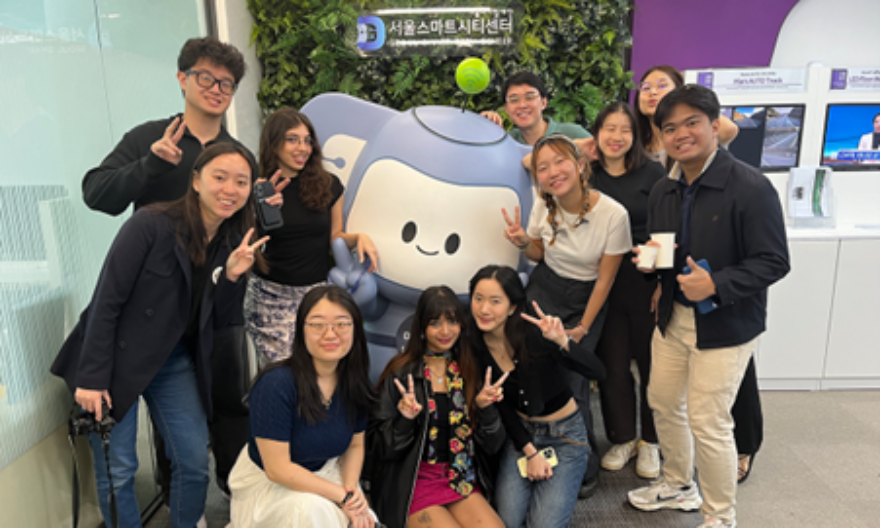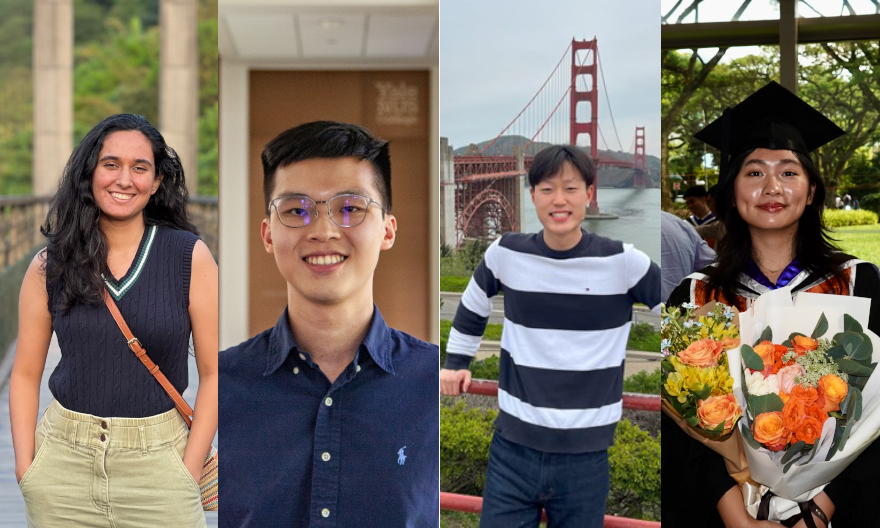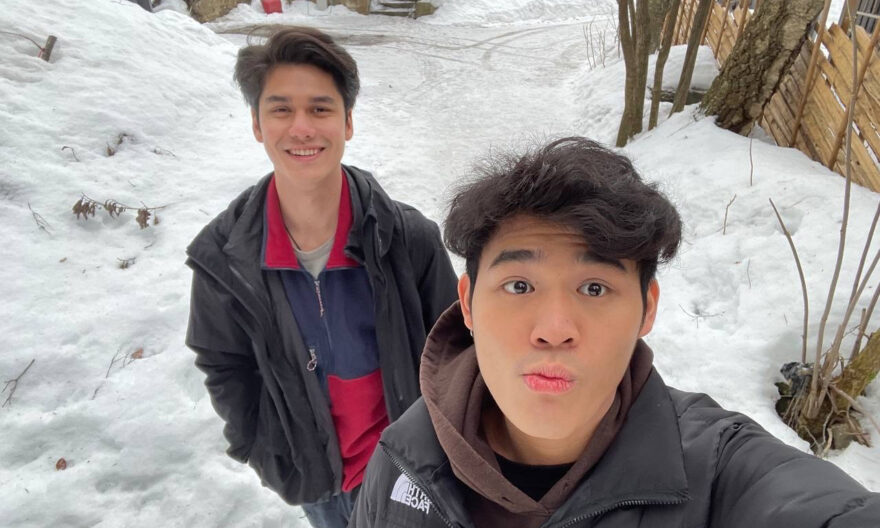Learning about China’s rise and the future of ASEAN in Cambodia
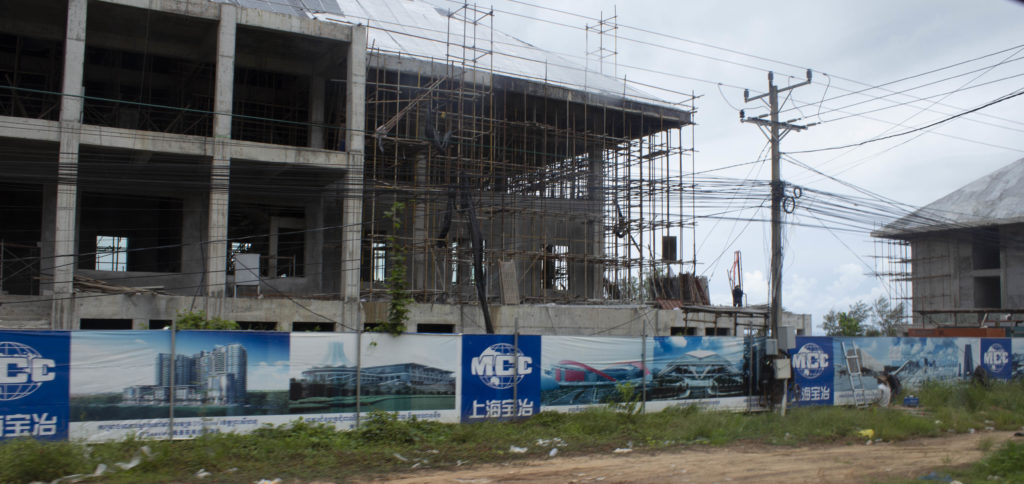 Image provided by Lucy Kuo.
Image provided by Lucy Kuo.
In May 2019, journalist and Yale World Fellow Vincent Ni led a group of students from Yale-NUS College and Yale University to Cambodia to explore the rise of China and the future of Association of Southeast Asian Nations (ASEAN) through journalism. The trip was part of Yale-NUS’ Learning Across Boundaries (LABs), a faculty-led programme organised in collaboration with the Centre for International & Professional Experience (CIPE). For the first time, the LAB was open to students from Yale University.
One of the four Yale students who attended the LAB was Meng Fei Shen who had just completed an exchange programme at Yale-NUS College. Meng Fei majors in East Asian Studies at Yale University and applied for the LAB as she wanted to learn more about Southeast Asia and how countries in the region are being affected by the Belt and Road Initiative (BRI).
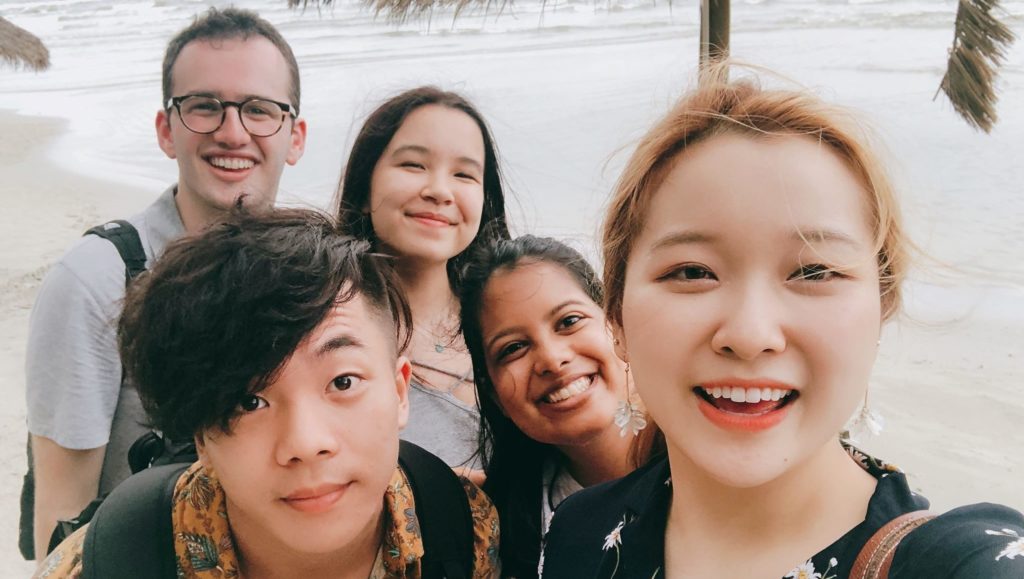 Image provided by Meng Fei Shen.
Image provided by Meng Fei Shen.
“This trip was a valuable opportunity to meet and converse with a diverse group of people who have been impacted by Chinese investment in different ways. We spoke with many Cambodians, from students to NGO workers and Chinese-Cambodians to understand the impact of Chinese investments.”.
During the LAB, students visited Phnom Penh, Cambodia’s capital city, and Sihanoukville, a coastal city that has seen a huge influx in Chinese investments in recent years. In Phnom Penh, students also engaged with Khmer Rouge history through site visits and conversations with local experts and organisations, such as the Documentation Center of Cambodia (DC-CAM) and the Bophana Center.
“While there are some controversies surrounding Chinese investments, such as the environmental impact of investments in Sihanoukville, speaking to a variety of stakeholders made me realise that it is worth taking the time to dig deeper and understand the voices that go unheard. That’s my biggest takeaway from the LAB which I hope to carry with me as I work on my senior thesis and enter the professional world,” said Meng Fei.
Meng Fei shared that she also appreciated her semester at Yale-NUS, where she had the opportunity to take a special seminar on US Strategy and the Rise of China, in which she learnt about increasing security and trade tensions between the two superpowers. Through her exchange programme and LAB, Meng Fei’s understanding of the region has deepened.
Lucy Kuo (Class of 2020), an Economics major, said that she particularly enjoyed her visit to Future Forum, a local think tank. During the visit, students learnt about the think tank’s research into developments in the Mekong River region and the motivations of the researchers in undertaking their work. Through such visits, Lucy gained a deeper insight into public policy and politics in Cambodia. The experience will be invaluable for her upcoming capstone project, which would likely be on developmental economics.
“Cambodia is particularly interesting to study given the tensions between US-China influences at the moment as well as the influx of foreign direct investment. After taking Assistant Professor of Social Sciences (Environmental Studies) Angel Hsu’s course on China’s Energy and Environmental Sustainability, I applied for this LAB as I wanted to further explore topics I studied in the course and learn about China’s influence in the region”.
As part of the LAB, students had to work on news stories on Cambodia and Singapore based on their research and site visits. They then received guidance and feedback from Mr Ni after they returned to Singapore.
Alysha Chandra (Class of 2021), the Editor-in-chief of The Octant, an autonomous student-run newspaper at Yale-NUS College, said that the LAB was highly relevant to her professional interests.
“I am interested in pursuing journalism as a career, so this LAB was an excellent opportunity to get some reporting experience and learn from Vincent. Observing the way Vincent conducts himself in interviews and ask sensitive questions was very educational. Through the workshops he conducted, as well as the feedback he gave on my article, Vincent taught me a lot about adding colour to a story and how to link broad geopolitical happenings to small local situations”.
Another student, Yuki Nakamura (Class of 2020), applied for the LAB as she wanted to conduct research through journalism and learn about sustainable development. As a result of the LAB, Yuki said that she became more aware of the nuances of identity in studying Chinese influence in the region and the importance of sustainable development.
“I believe that it is an immense privilege to have the opportunity to speak with people and hear about their personal or professional lives, as well as have the time and space to represent these stories. The people we have talked to have taken their time to tell us their deeply personal stories. For instance, one of the those who accompanied us on our bus ride back to the airport shared his experience of being abused as a child during the Khmer Rouge regime.”
“At the end of the day, we are able to come back to Singapore or our respective homes and go on about our life. However, the people whom we have met and shared with us their difficulties, still live through them every single day. As I continue to confront and make sense of my own privilege, I hope to use journalism and this writing as a way to share the personal stories we have had the opportunity to hear, truthfully, with the respect that it deserves.”

